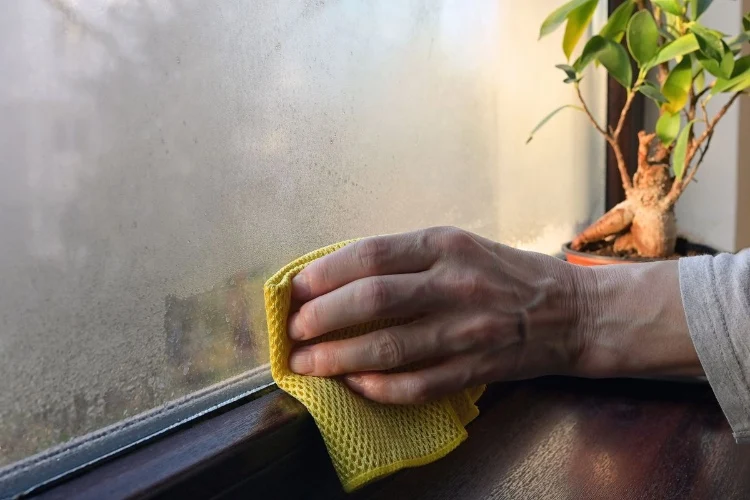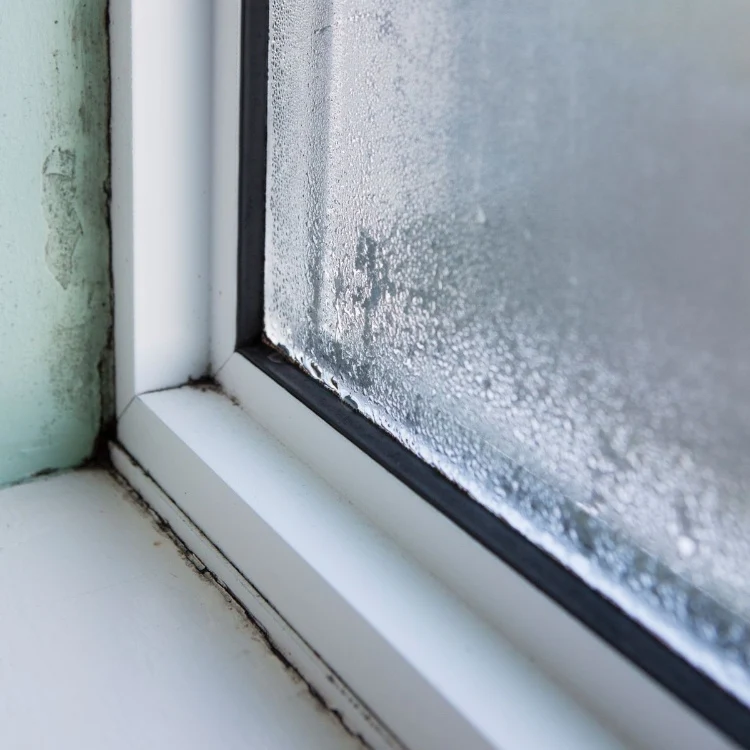Whether streaks or drops: each of us has already noticed condensation on the inside of the window. Condensation in itself is not dangerous or harmful, but it can lead to mold growth. If there is also a lot of condensation in your house or apartment overnight, then you should act immediately. In this article, we will tell you what really helps and what you can do if the forced ventilation does not help.
What are the possible causes?

Actually, the condensation is caused by high humidity in the room. When the warm air hits the cold glass panes, water is released. This mostly happens in the winter months when it is cold outside and rooms are heated. It often happens overnight. The possible reasons for the condensation are:
- Humidity is too high. If the humidity is above 60%, condensation is encouraged.
- High temperatures inside and low temperatures outside.
- Improper ventilation.
The possible measures that can help against condensation on the inside of the window are – reduce the humidity and ventilate properly. Did you know there are species of humidity absorbing plants that can help you cope with this problem?
What really helps ?

The first thing you should do about condensation is related to humidity. Certain habits can increase it. Then even regular airing cannot help. If you often see streaks of condensation or moisture on the window frame in the morning, then you should ask yourself:
- Where does the condensation form?
- Possible causes of condensation on the window frame: The windows are probably leaking. This allows the heat to escape and water collects on the window frame.
- If the windows fog up between the panes, this is another sign of leaky windows. The glass panes cannot insulate the heat effectively. The window surface cools down and water collects between the panes, mostly on the outer pane. In most cases, the glass panes are replaced. In some cases it also helps if you attach a self-adhesive profile seal. A glass renovation is also an option.
- If condensation accumulates on the inside of the window, you can try to lower the humidity with cross ventilation. As the name suggests, two opposite windows are opened for cross ventilation and kept open for a short period of time. This is best done in the morning after getting up.
- How can I avoid condensation on the inside of the window?
- Lower the humidity.
- Regulate the room temperature.
Why does moisture accumulate on the window overnight ?

Foggy windows in the morning are not a pretty sight. There are two possible reasons why so much condensation accumulates on the window overnight. The humidity in the room increased in the evening. If you cook or take a shower and then open the windows wide, then the moisture can spread throughout the apartment. The result – you’ll find condensation on the windows in the coldest rooms in the house. To prevent this, you can:
- Keep the room temperature in the apartment or house as constant as possible. It is recommended that this varies between 18 and 22 degrees Celsius, preferably 20 degrees Celsius. This applies above all to the living area: if you switch off the heating there in the evening, you will find streaks of condensation on the windows in the morning.
- Keep the humidity low – it must not exceed 60%.
What to do against condensation in the bedroom?
- Improve air circulation. Leave at least 50mm space between bed, wardrobe and wall. However, this rule of thumb is rarely followed, especially in the bedroom. A mistake, actually, because you can avoid mold growth in the closet or behind the closet with good air circulation.
- The evaporating water from the aquarium in the bedroom or living area can also work wonders and solve the problem.
- Clothing should also be organized in the closet in such a way that air can circulate freely. It is better that you hang the majority of the clothes and do not put them in the cabinets.
- If you have a dryer near the bedroom, you should have its seals checked regularly.
- If you don’t have a dryer, you can dry your clothes outside as long as the weather permits.
- Air the room before you go to bed and after you get up in the morning.
Prevent fogged windows in the kitchen

Rooms where the humidity increases significantly are all wet rooms (laundry room and bathrooms) and the kitchen. There are a few things you should pay attention to when cooking, especially in the kitchen:
- Cook only with the lid closed.
- Leave the hood on for about 15 minutes after you finish cooking. In this way, it can better remove the humidity in the room. By the way, the latest models are equipped with special sensors and, if necessary, can automatically correct the levels. For example: when the water starts to boil, the hood works on the highest level. If the food is ready, then the hood works at a medium level. This saves you electricity and resources.
- Close the kitchen and bathroom door. In this way you can prevent the humidity from the kitchen getting into cold and unheated rooms.
Avoid condensation on the windows in the bathroom and in the laundry room
- Install a bathroom fan. It can help reduce the amount of condensation.
- Open the windows in the bathroom so that the humid air can escape. Even if it’s raining outside, you should air the bathroom regularly, i.e. at least three times a day.
- Air regularly, i.e. at least three times a day.
